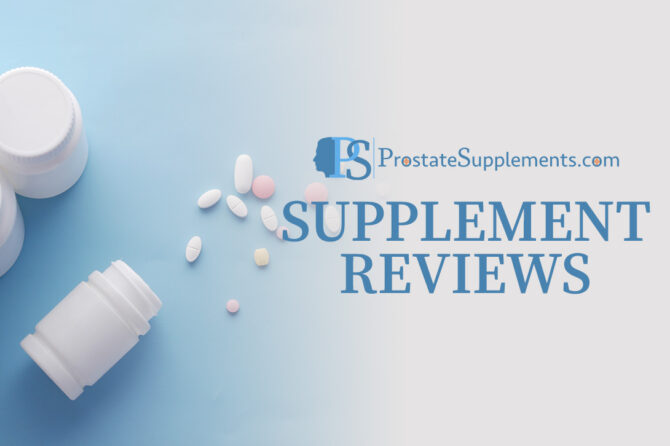
Nickel Supplement Benefits for Middle-Aged Men: Health Review & Ingestion Safety
🧭 Nickel Trace Mineral: Overview & Biological Role
Nickel is a trace mineral naturally found in plant‑based foods, soil, and water. Humans absorb only a small fraction—typically ≤ 10%—of dietary nickel, with the rest excreted via urine or feces (The Nutrition Source). Although nickel is essential for various microorganisms and plant enzymes, evidence remains limited regarding a defined essential role in human nutrition; no RDA or AI has been officially established (Wikipedia).
✅ Nickel Benefits for Middle-Aged Men’s Health
Nickel for Iron Absorption & Hemoglobin Support
Some sources suggest nickel might aid with iron absorption, potentially supporting red blood cell development and addressing mild anemia risks—though evidence is considered insufficient or preliminary as it’s primarily based on animal or observational data (RxList).
Nickel and Bone Health
Limited studies propose nickel could be linked to bone mineral density and support osteoporosis prevention, especially relevant to middle‑aged men facing bone loss risks—but again, the evidence is weak and not firmly established (RxList).
Nickel for Metabolic Enzyme Function
Nickel binds to and influences several trace mineral–dependent enzymes (e.g. urease, superoxide dismutase in microbes), and may play a minor role in metabolic pathways—though the exact human metabolic functions remain unclear (Advances in Nutrition).
⚠️ Nickel Safety, Toxicity & Allergy Information
Nickel Tolerable Intake & Toxicity Thresholds
The tolerable upper intake level (UL) for nickel is approximately 1 mg/day, chiefly based on soluble nickel salts (NCBI). Typical dietary exposure averages 70–100 μg/day, well below that threshold (Wikipedia).
High chronic or inhalational exposure—especially in industrial settings—is linked to respiratory cancer risk. However, oral ingestion at dietary levels is not associated with increased cancer risk in adults (Wikipedia).
Nickel Allergies & Systemic Sensitivities
Nickel allergy and systemic nickel allergy syndrome (SNAS) can cause eczema, gastrointestinal disturbances, or IBS‑like symptoms. These are particularly significant in individuals sensitized to nickel through skin contact. Such individuals should avoid supplemental nickel or high‑nickel foods (e.g. chocolate, legumes, nuts, canned foods, some vegetables) (Wikipedia, IJDVL).
💊 Nickel Ingestion Methods & Dietary Sources
Nickel-Rich Dietary Sources
Nickel is ingested naturally through foods such as nuts, legumes, grains, soy, chocolate, and some vegetables. Stainless steel cookware may leach small amounts (e.g. ~88 μg per serving of tomato sauce after repeated use) (Wikipedia).
Nickel in Supplements & Multivitamins
Nickel may appear in trace‑mineral supplements or multivitamins—but nickel‑only supplements are rare, and doses are typically very low. Uses claimed include prevention of nickel deficiency and marginally improved iron absorption—but the clinical efficacy is not supported by strong human trials (WebMD).
Safety note: Never exceed 1 mg/day without medical supervision.
Experimental Nickel Therapies (Low-Nickel Diets)
In individuals with SNAS, low‑nickel dietary programs, sometimes combined with probiotic therapy, have shown symptom reduction over time. These are therapeutic protocols, not general supplementation guidelines (MDPI).
📋 Summary Table: Nickel & Health
| Feature | Summary |
|---|---|
| Essential nutrient? | Possibly for microbes/enzymes; no RDA for humans |
| Middle‑aged men benefits | Low‑level potential support to iron & bone health, but evidence is weak |
| Typical intake | ~70–100 μg/day (very low absorption) |
| UL (Tolerable Upper Limit) | ~1 mg/day |
| Risks | Allergic dermatitis, GI reactions in sensitized folks; industrial inhalation hazards |
| Supplementation | Rare; found primarily in trace‑mineral products, always under 1 mg/day |
| Best approach | Eat balanced plant‑rich diet; avoid nickel if allergy present |
🧬 Nutritional Advice for Middle‑Aged Men Taking Nickel
- Focus on whole foods (legumes, grains, nuts, soy) for natural nickel exposure.
- Ensure iron and vitamin C intake, as nickel absorption may interact with them—vitamin C enhances iron absorption, but effects on nickel absorption vary depending on food context (e.g., milk, tea, orange juice) (NCBI, Wikipedia).
- If no nickel sensitivity, occasional low-dose trace-mineral supplements may be safe—but avoid exceeding 1 mg/day of ingested nickel.
- If allergic or sensitized, pursue medical or dermatological advice; consider low‑nickel diet plus probiotics if SNAS is suspected.
📌 Final Thoughts: Should Men Supplement with Nickel?
Nickel is a trace mineral encountered naturally through diet and involved in some biochemical processes, but in humans its role remains not well understood. Middle‑aged men may gain marginal benefits related to iron utilization or skeletal health—but only via combined nutrient-rich diets. Supplementation beyond dietary levels is generally unnecessary and may pose allergy risks. For most people, a balanced diet ensures adequate nickel without concern.
Always consult a healthcare professional if considering targeted nickel supplementation or suspecting sensitivity.
Leave a reply

Leave a reply